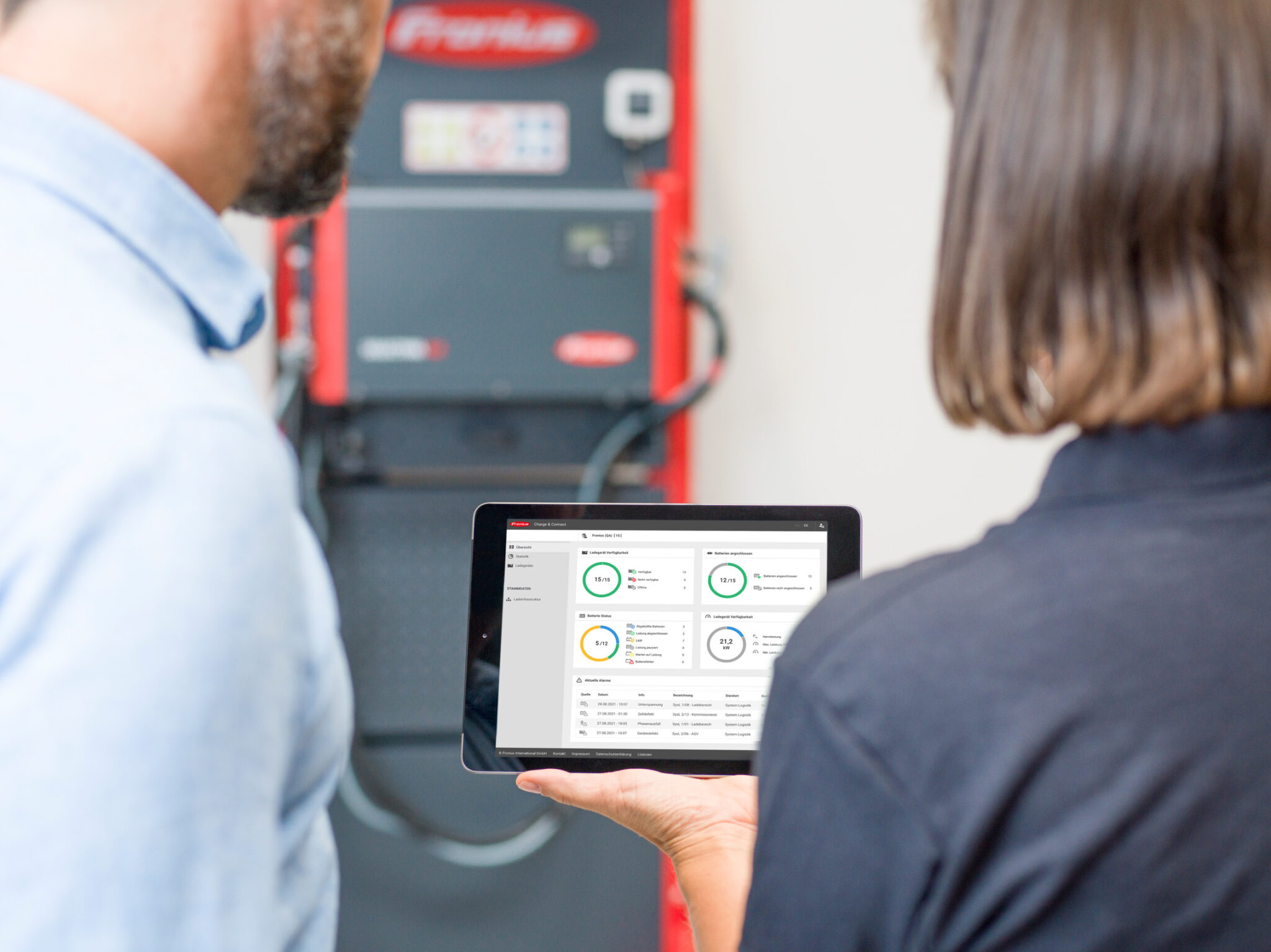Bosch and US-based cloud provider Amazon Web Services (AWS) are collaborating with the aim to improve efficiency and sustainability in the transportation and logistics industry.
Their plan is to offer logistics companies and freight forwarders across the globe quick and easy access to digital services through a platform powered by AWS. Going forward, they will offer support for topics ranging from capacity utilisation of commercial vehicle fleets to monitoring goods flows to order processing – all from a single source.
To this end, Bosch and AWS have now entered a strategic collaboration. Bosch will be responsible for developing and operating the logistics platform, the core of which is a marketplace for digital services, while AWS will contribute its comprehensive cloud offering and expertise. The platform will facilitate smooth interaction between a variety of services and data, enabling transportation and logistics companies to benefit much more from the opportunities of digitalisation without having to set up their own resource- and cost-intensive IT projects.
The marketplace will also be open to all digital logistics services providers. Industry and consumers will benefit from the initiative because of greater reliability and transparency in goods and parcel delivery, for example. The companies plan to present a preliminary version of the logistics platform at the forthcoming Hannover Messe, with the launch for Europe, India, and the US set for late 2022.
“The transportation and logistics industry is the backbone of the global economy,” says Sandeep Nelamangala, Executive Director, Bosch Limited, and Executive Sponsor of logistics platform business at Bosch. “In the years ahead, it will have to shoulder continuously increasing transport volumes for goods and commodities while simultaneously reducing its carbon footprint. In collaboration with AWS, we want to help the logistics industry with this. We aim to ring in the future of the industry and drive forward its digitalisation.”
Greater efficiency through increased digitalisation
Kathrin Renz, Vice President, Business Development and Industries, AWS, added: “Developing hyperconnected transportation functions is one of the most complex technical challenges of our time. That’s why we are working with a market pioneer such as Bosch to master these unique challenges.
“the digital marketplace will enable logistics customers to quickly transform their business into a fully digital end-to-end value chain. Customers will benefit from the tools, frameworks, and modules we offer for digitalisation, in addition to improving the sustainability of their transportation processes.”
Years-long boom – and no end in sight
The transportation and logistics industry has been booming for years. During the Covid 19 pandemic, online orders and parcel deliveries saw another sharp increase, giving the industry a further boost. By 2030, global goods transport will grow more than 40%, and by 2050 this figure is even expected to exceed 145%. This growth is hitting a market that is highly fragmented globally – as well as struggling with various areas of inefficiency.
A few facts will illustrate this: More than 95% of the companies operating in this industry worldwide are SMEs. Approximately nine out of 10 companies operate with fewer than five vehicles. The majority of freight forwarders still organise their daily business manually or with an assortment of unrelated computer programs.
Moreover, according to the goods transport statistics of Germany’s Federal Ministry for Digital and Transport, more than 150 million trips are empty runs, which adds up to more than 6.5 billion empty kilometres annually, or more than 160,000 unnecessary journeys around the earth. This weighs heavily not only on efforts to protect the climate, but also on the already problematic shortage of drivers. The Federal Association for Goods Traffic, Logistics, and Disposal estimates that there is a shortage of between 60,000 and 80,000 drivers in Germany alone – and the situation is becoming more and more acute across the globe.
Many challenges – one solution
With its logistics platform, Bosch aims to provide a key solution for many of the challenges facing the transportation and logistics industry. The advantage of this platform is that it will create an entire ecosystem and a software environment in which freight carriers and forwarders can select, book, and execute different providers’ services to meet their specific needs. The platform also allows for easy integration of applications that are already relevant to the market, for instance, in transportation management systems.
Thanks to shared usage of data that is available through the telematics systems in commercial vehicles, for example from fleet management, it is also possible to link and allow interplay between different services from different areas. This makes it easier to leverage synergies.




